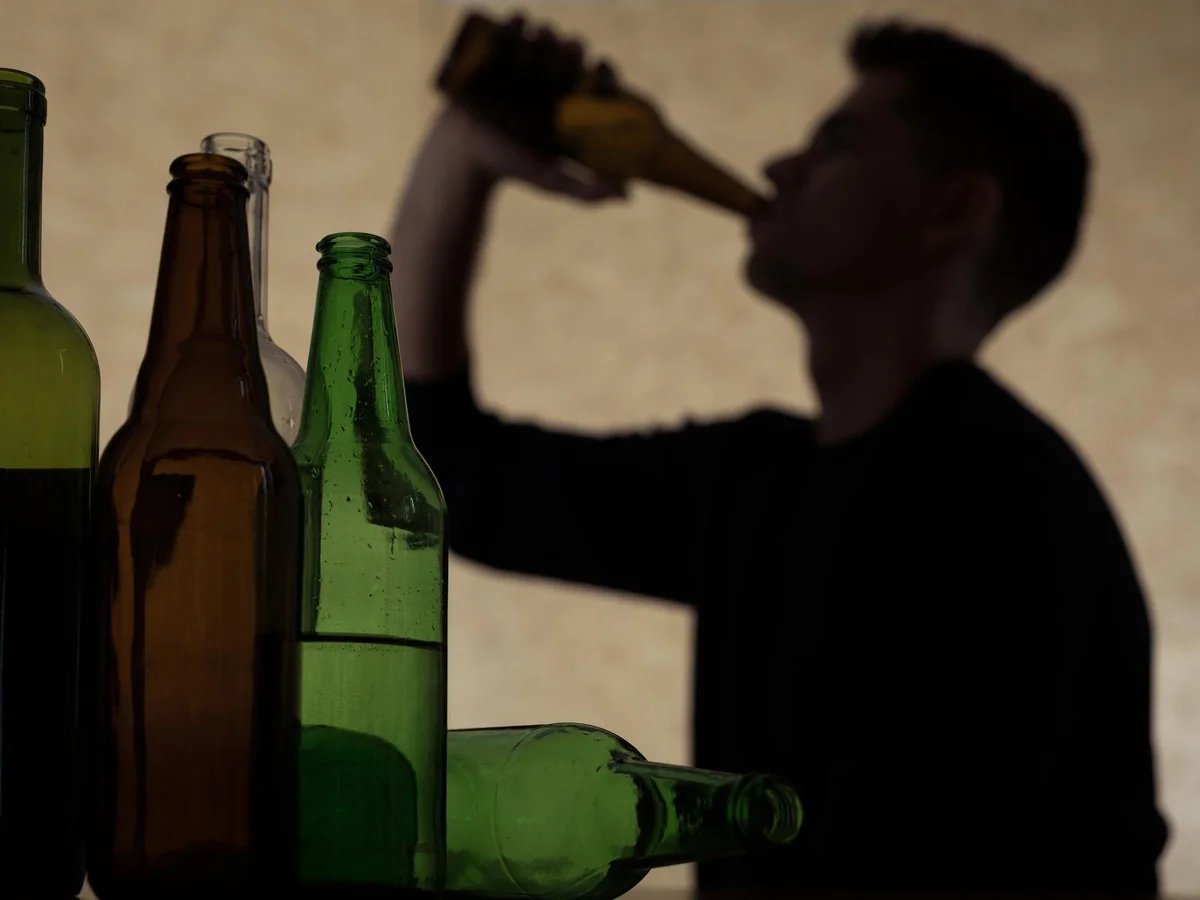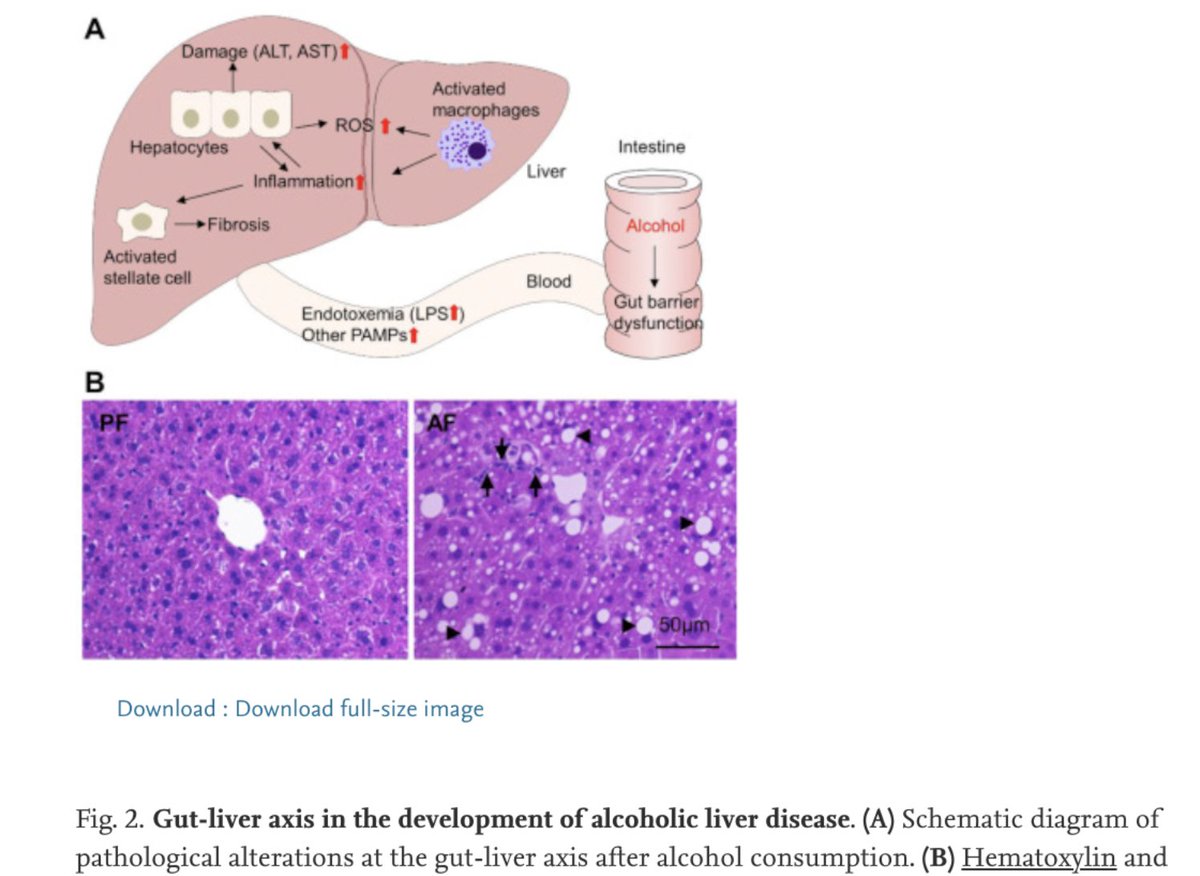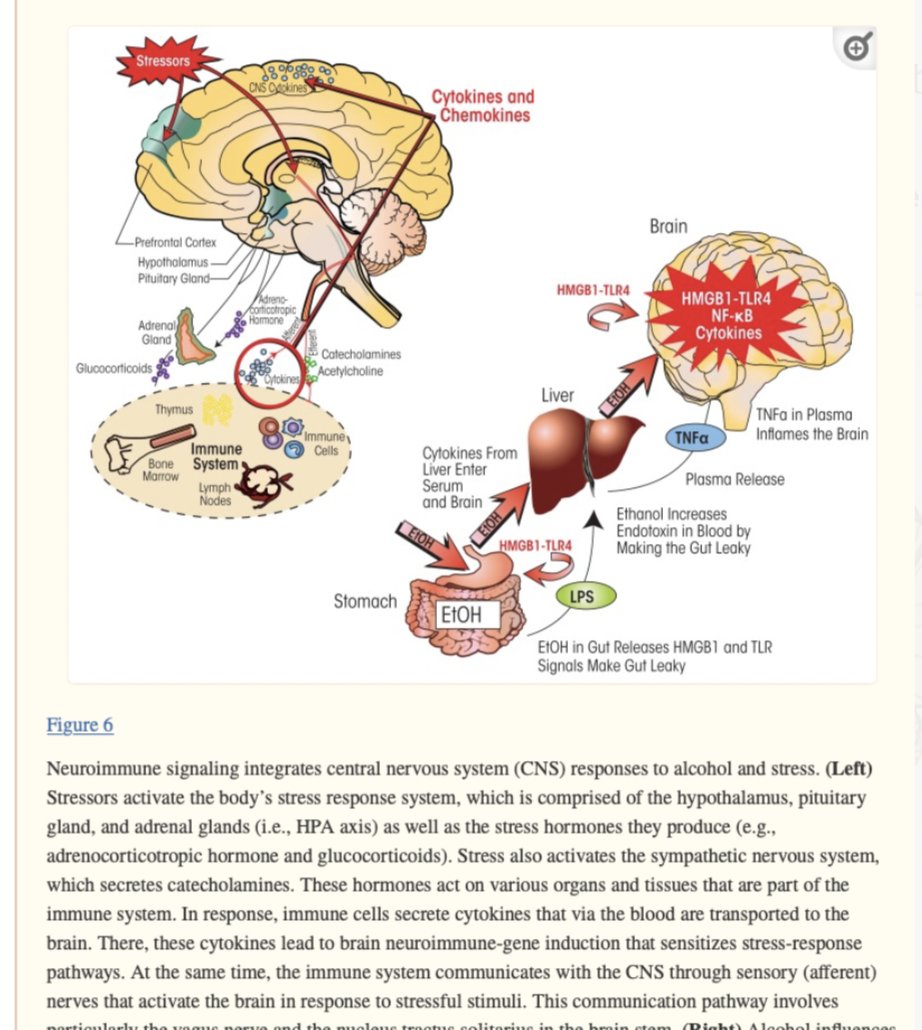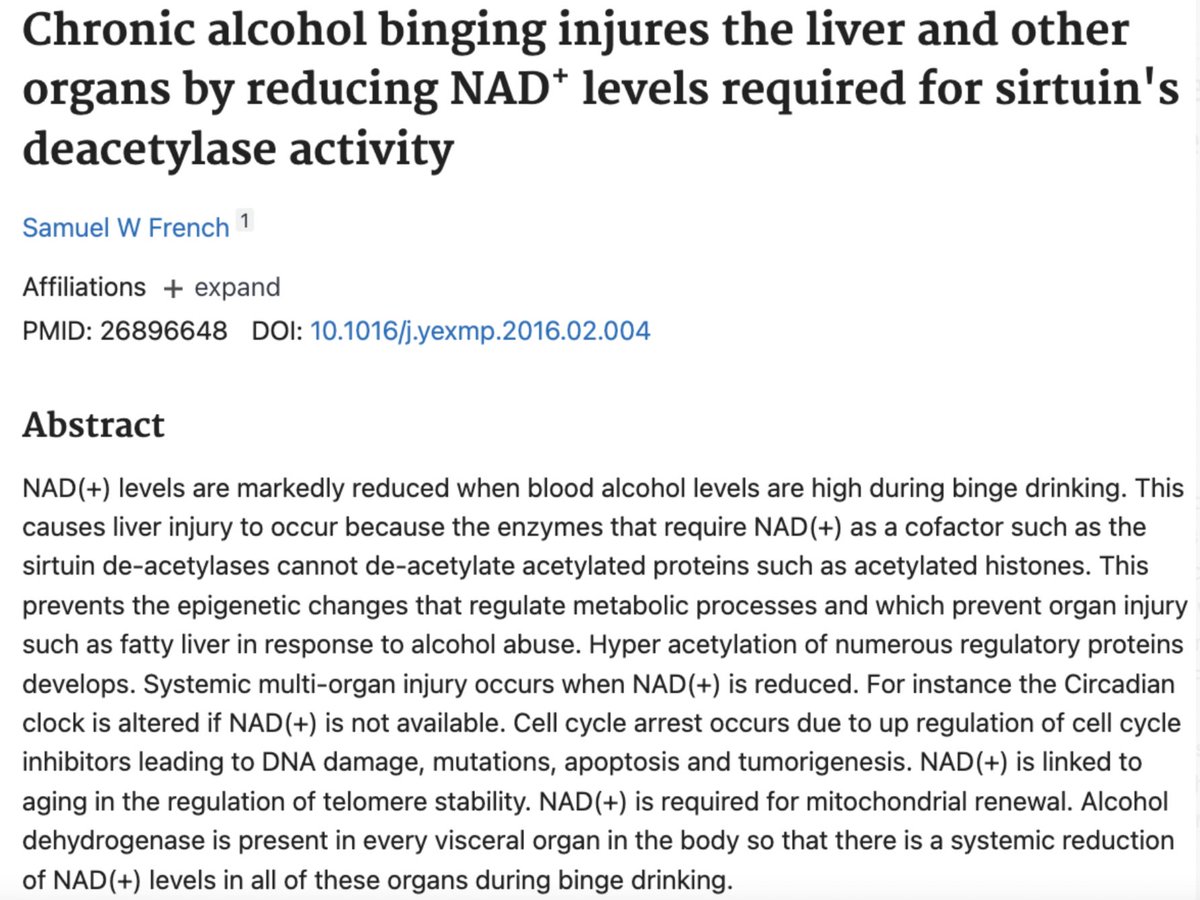The more i learn about alcohol the more i want to quit
Alcohol poisons your brain, and that is why you feel drunk. It shrinks neurons, destroys your gut barrier, and leads to loads of inflammation. It depletes NAD levels, critical for longevity and ruins your sleep.
A thread:

Alcohol in any quantity is likely bad for you.
However, most of the issues stem from chronic usage.
Infrequent alcohol usage every now and then probably isn’t the worst thing in the world.
Here’s how it affects you and how to mitigate the damage
#1 GUT DAMAGE
The first place alcohol harms is the gut.
Alcohol disrupts the microbiome leading to dysbiosis
It also compromises the barrier, leading to leaky gut, allowing endotoxins to pass into your bloodstream, causing lots of inflammation, constipation & sibo

Anything that damages your gut, will also be detrimental to your liver & brain via the gut-liver- brain axis (as I will describe more below.
This study below suggested that targeting the gut barrier dysfunction could remedy alcoholic liver disease.

#2 LIVER DAMAGE
Alcohol is about as bad as it gets for your liver & alcoholic liver disease is skyrocketing in millennials for that reason
The gut damage allows endotoxins to pass through to the liver, causing inflammation, oxidative stress, immune activation and fat deposits.

Alcohol depletes the livers detox pathways which disrupts the abiltiy to deotxify other harmful substances, leading to other issues down the road.
It also causes pufa perooxidation in the liver.

#3 BRAIN DAMAGE
Ethanol is extremely toxic to the brain. In fact, it causes inebriation via poisoning.
One way it causes damage is via the gut and liver damage, causing immune activation and inflammation that makes its way to the brain.

This study showed that alcoholics have reduced gray matter (areas of neuron density) in the brain
This is one of the reasons why alcoholics have learning and memory deficits and behavioral changes

It’s not just alcoholics that have issues — this study showed that just 1-2 drinks a day is associated with brain damage, equivalent to aging to years.

#4 LOW TESTOSTERONE + INCREASE IN ESTROGEN
Alcohol usage will increase estrogen andl ower testosteorne via multiple mechanisms
This study showed that alcohol increased aromatase expression in the liver, converting testosterone into estrogen
(estrogen will also lower T)

According to this study, alcohol reduces testosterone synthesis

Lastly this in adult men suggested ethanol is feminizing and increases estrogen levels.

Many alcohols also contain potent pythoestrogens,.
Hoppy beer has a very potent phytoestrogen, likely equivalent to a few mcg of estrogen.
Meaning if you drink enough of these, you’re getting a dose near the ballpark of birth control (35 mcg)

#5 DEPLETES B VITAMINS, NAD AND VIT A
Alcohol depletes many critical vitamins and nutrients
NAD is depleted when detoxifying alcohol
NAD is critical for almost every metabolic process, including circadian rhythm, glucose metabolism, cognitive function, cell renewal and repair.

Alcohol isn’t just processed by the liver, it actually can make its way to almost every organ, requiring NAD to dispose of it.
When NAD is depleted, metabolic rate and tissue repair begins to slow, allowing more damage to accumulate in every tissue alcohol reaches
Alcohol also depletes b1, one of the most important vitamins for cognitive function and glucose metabolism.
This study below suggests that the neurodegenerative diseases we see with alcohol usage are pornetially due to this b1 depletion

Alcohol depletes vit A in the liver, required for immune function, skin elasticity, testosterone and progesterone synthesis and many more critical functions.
#6 ALCOHOL DISTURBS SLEEP
While alcohol may help you fall asleep faster, it disrupts sleep architecture, leading to less deep sleep, lless rem sleep and a disordered sleep cycle
This will make you more tired in the morning, lead to cognitive impairment & less tissue restoration

#7 ALCOHOL CAUSES ANXIETY
Alcohol initially increases GABA, an inhibitory, anti anxiety neurotransmitter
However, over time it reduces the # of GABA receptors, causing overexcitation and anxiety.
Do not drink to destress, it’ll backfire
MITIGATE DAMAGE
Fortunately, there are some ways to reduce damage.
First off, saturated fats are one of the most effective ways to help the gut and the liver
This study below showed that sat fat supplementation completely blocked the negative effects of ethanol to liver & gut


PUFAs on the other hand, exacerbate issues and according to this study below, linoleic acid is REQUIRED for ethanol to damage your liver.
“the tallow ethanol group didn’t show any liver damage”
The last thing you want is a pufa heavy meal with alcohol

When you consume alcohol you need to detoxify it. Two of the main enzymes are ADH and ALDH. Both require NAD as a cofactor, thus b3 is great to supplement.
Another option: EAT CHEESE which massively stimulated both of those enzymes.
The French get it.

This study also showed green tea was helpful for upregultaing enzymes.
Avoid pepper, coffee, Coca Cola and orange juice when drinking.

Some other thigns I like to do:
supplement b1 and b3
vitamins a,d, e, k to inhibit aromatase
zinc for gut
vit e to reduce oxidation and chelate iron
glycine for gaba & gut
magnesium
honey for chrysin
taurine protects liver
1 glass of water + electrolytes for every drink
aspirin
Drink every now and then if you love it. But if you’re trying to be healthy, there’s absolutely no reason you should be drinking daily.
